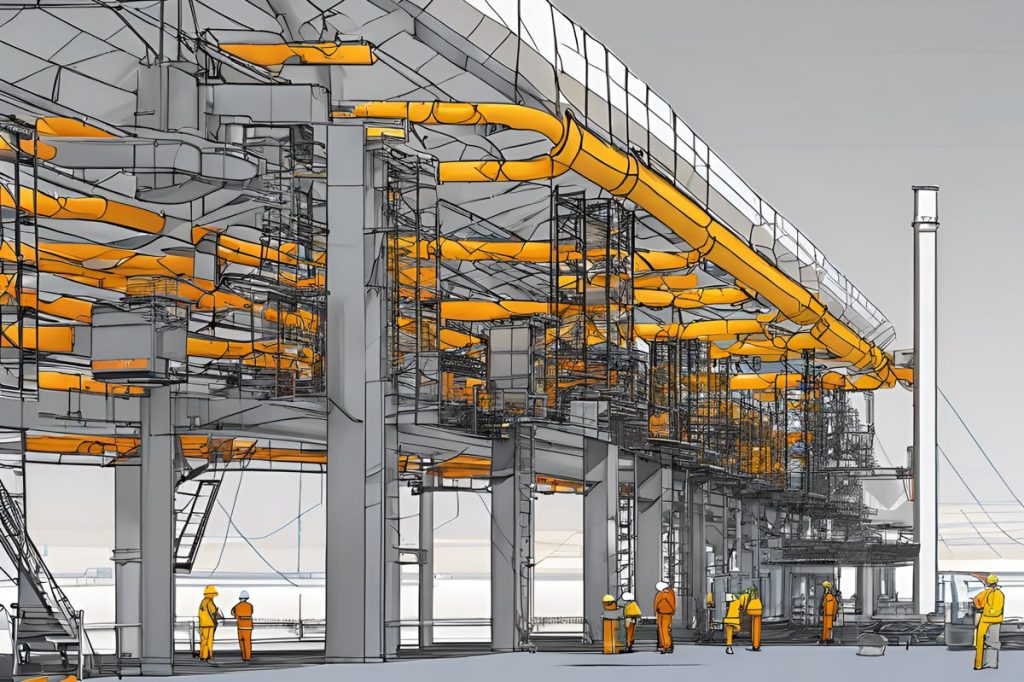The Vasilikos LNG project in Cyprus faces delays and disputes, with completion pushed to 2025 and potential costs exceeding €0.5 billion for consumers. Success relies on integrating the terminal, pipelines, and power plants for a crucial shift from oil to cleaner natural gas.
What is the current status and impact of the Vasilikos LNG project in Cyprus?
The Vasilikos LNG project in Cyprus is plagued by delays due to non-transparent tendering and disputes in pipeline contract awards, with significant economic and environmental costs. Completion is now expected no earlier than 2025, with potential financial burdens exceeding €0.5 billion for Cypriot consumers. The project’s success depends on the operational integration of the terminal and pipelines with power plants for the transition from oil to LNG.
Unveiling the Vasilikos LNG Debacle
The Vasilikos LNG import and regasification project has been a focal point of controversy due to the alleged malpractices surrounding its award. Revelations by the auditor-general in 2019 and in recent assessments have brought these issues to light, calling for thorough investigations. It’s crucial to unravel the events that precipitated this failure to prevent future recurrences. Central to this debacle is a non-transparent tendering process that is rife with corruption—an issue that necessitates a separate, in-depth discussion.
Moving forward, our focus shifts to the potential recovery of the project. The objective reaches beyond constructing a terminal at Vasilikos. Cyprus aims to transition its power generation from oil to natural gas, marking a significant leap towards cleaner energy. To achieve this, we must ensure the completion of several key components: the Vasilikos terminal with its FSRU, securing LNG purchase contracts, establishing pipelines connecting the terminal to power plants, and preparing the Electricity Authority of Cyprus (EAC) and independent producers to switch to gas.
Critical Hurdles in Pipeline Connectivity
The pipeline installation, essential for channeling LNG from the Vasilikos terminal to power stations, is currently a bottleneck in the project’s progress. This task falls under the Natural Gas Public Company (Defa), which has faced its share of tumult. The awarding of contracts for pipeline design and construction has stumbled into disputes, raising the possibility of process repetition.
The question looms: why has such a critical aspect of the project been so grossly mishandled, given its importance was acknowledged from the project’s conception? Should the design contract disputes find resolution soon, even then, the pipeline system is unlikely to be operational before the end of 2025—this date now stands as the earliest completion horizon for the oil-to-gas transition, contingent on the readiness of other project facets.
Soaring Costs of Delays
The ramifications of these delays are severe, both environmentally and economically. The original deadline for project completion was set for September 2022, meaning the delay spans over three years. This protraction entails continued reliance on expensive oil for electricity and increased expenses for emissions allowances, potentially amassing to €300 million. When adding the cost overruns from the LNG project itself, the total financial burden could surpass the staggering €0.5 billion mark—a cost to be borne by the Cypriot consumer.
The Fate of the Vasilikos Terminal and FSRU
The Vasilikos terminal, coupled with the Floating Storage Regasification Unit, remains a beacon of hope in this transition from oil to LNG. The success of these facilities is interlinked with the completion of the other project steps. The terminal’s significance is not merely in its existence but in its operational integration with the power plants it’s meant to serve. The efficacy of Cyprus’s shift to natural gas hinges on the smooth execution of these intricate parts, ensuring the terminal can fulfill its intended purpose.
In summary, it’s a race against time and setbacks to bring the Vasilikos LNG project to fruition. With a clear vision and an urgent need for a systematic overhaul of processes, Cyprus stands at a crossroads, where decisive action could indeed pave the way from catastrophe to salvation for its electricity users.
What is the current status and impact of the Vasilikos LNG project in Cyprus?
The Vasilikos LNG project in Cyprus is facing delays and disputes, with completion now expected no earlier than 2025. Potential costs exceeding €0.5 billion for consumers are looming, making it a significant economic burden. The success of the project relies on integrating the terminal, pipelines, and power plants for a shift from oil to cleaner natural gas.
What are the critical hurdles in pipeline connectivity for the Vasilikos LNG project?
The pipeline installation, crucial for transporting LNG from the Vasilikos terminal to power stations, is currently a bottleneck. Disputes in pipeline design and construction contracts have caused delays, potentially pushing the operational timeline to the end of 2025. Resolving these issues is imperative for the successful transition to natural gas in Cyprus.
What are the soaring costs of delays associated with the Vasilikos LNG project?
The delays in the Vasilikos LNG project are not only causing environmental setbacks but also increasing economic burdens. The prolonged reliance on expensive oil for electricity and additional expenses for emissions allowances could accumulate to €300 million. When factoring in cost overruns from the project itself, the total financial burden could surpass €0.5 billion, impacting Cypriot consumers.
What is the fate of the Vasilikos terminal and FSRU in the Vasilikos LNG project?
The Vasilikos terminal and Floating Storage Regasification Unit (FSRU) play a pivotal role in Cyprus’s transition from oil to LNG. The success of these facilities is dependent on the completion of other project components and their operational integration with power plants. The smooth execution of these intricate parts is essential for the effective shift to natural gas in Cyprus.

